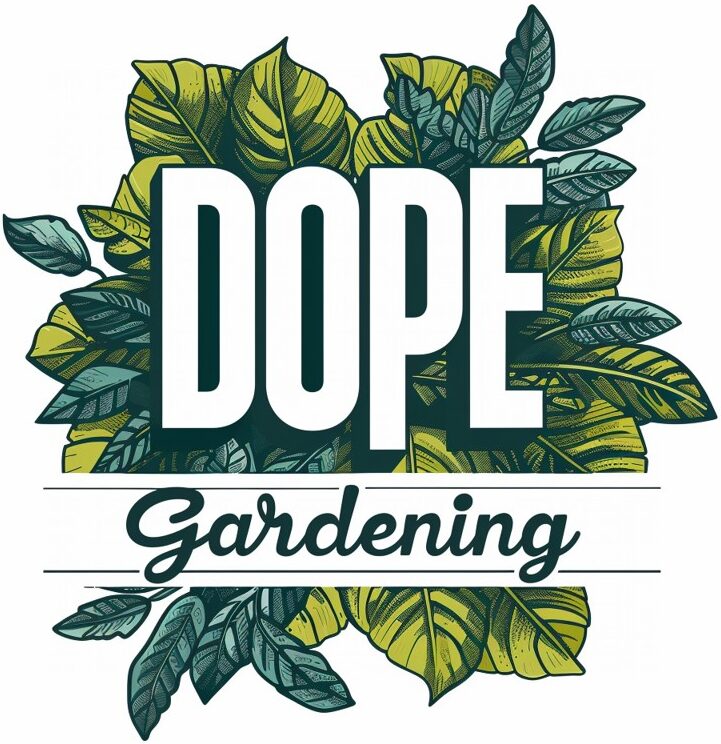Gardening Tips for Elderly: Easy and Enjoyable Practices
Gardening is a wonderful pastime that brings joy and relaxation to many people. As you grow older, staying active and enjoying nature becomes even more important for your well-being. Whether you’re new to gardening or a seasoned pro, there are plenty of ways to make it easier and more enjoyable.
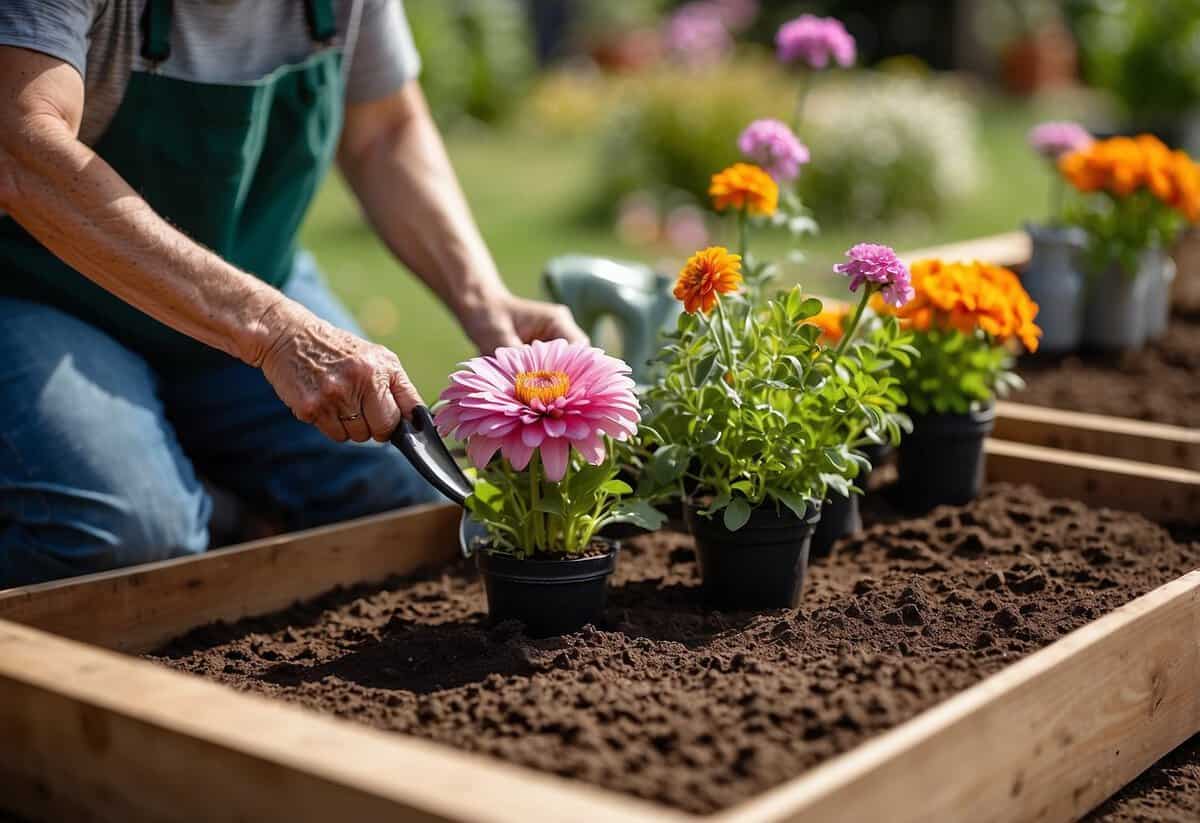
How can you continue to enjoy gardening while accommodating some of the physical changes that come with aging? There are many tips and tricks to help you maintain your garden with ease. In this article, you’ll find practical advice tailored for seniors to keep your gardening experience pleasant and fulfilling.
1) Raised Garden Beds

Raised garden beds make gardening easier for seniors. They reduce the need to bend or kneel, which can be hard on your back and knees. You can also make them at a height that is comfortable for you.
Using elevated beds allows you to garden while sitting on a stool or chair. This can be helpful for those with mobility issues. Placing raised beds in accessible locations, like your balcony or patio, can also make gardening more convenient.
2) Lightweight Gardening Tools
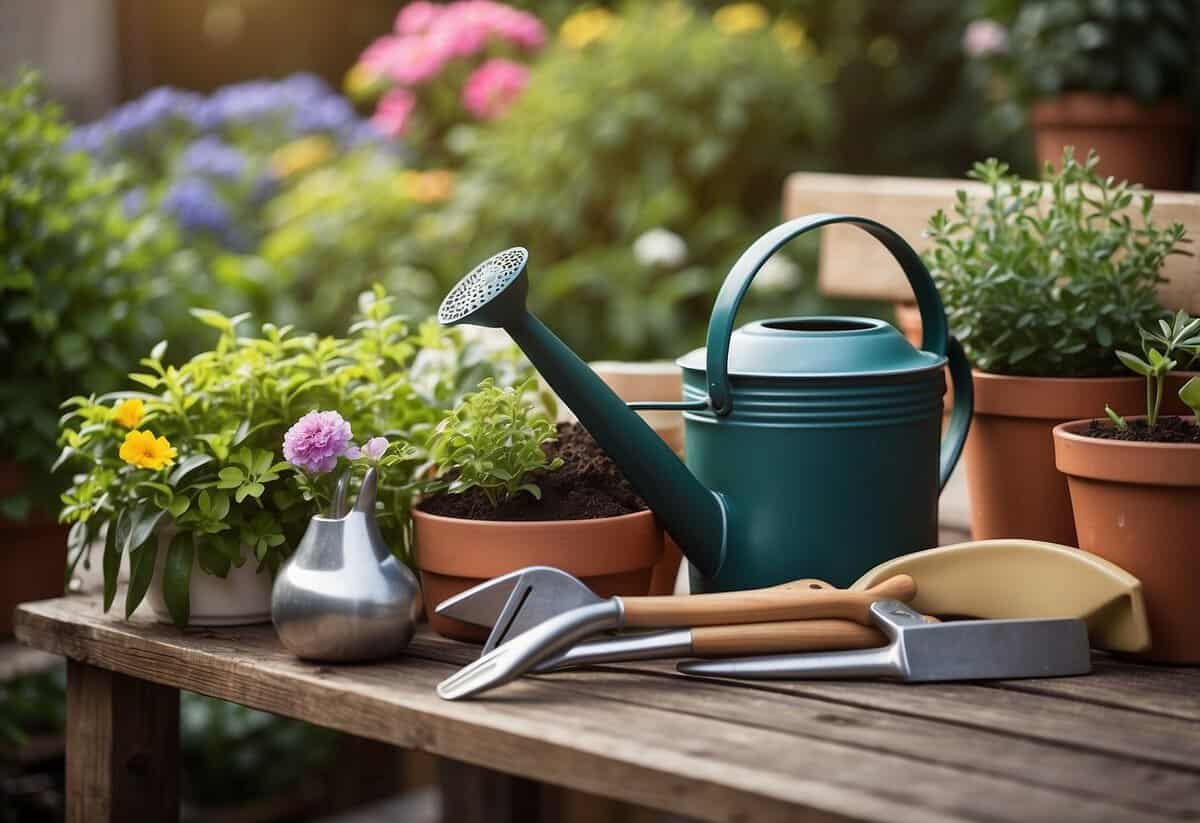
Using lightweight gardening tools can make your tasks much easier. These tools are especially helpful for seniors dealing with arthritis or limited strength.
One useful tool is the Radius Garden 10011 Ergonomic Hand Trowel. It has a comfortable grip and a sharp, aluminum blade that simplifies digging.
Another great option is the Gardener’s Friend Ratchet Pruner. This pruner is designed to reduce the amount of pressure needed to make cuts.
Consider investing in a rolling garden cart. It helps you move heavy items without lifting, saving your back and knees.
3) Ergonomic Kneeling Pads

Ergonomic kneeling pads are a must-have for elderly gardeners. They provide a soft surface for your knees, reducing pain and discomfort while you work.
Look for kneeling pads with memory foam, as they offer extra cushioning. The Ebung Garden Kneeler & Seat is highly recommended, easily transforming from a kneeling pad to a seat.
These pads can help protect your knees from hard ground and rocks, making gardening much more enjoyable. Lightweight and easy to carry, they are perfect for moving around your garden.
Comfortable and practical, ergonomic kneeling pads can make gardening easier and more fun.
4) Container Gardening

Container gardening is an excellent option for seniors. It allows you to grow plants without bending or kneeling too much. You can use containers of different sizes to fit your space and needs.
Choose lightweight pots like resin or plastic to make it easier to move them. Large containers can hold vegetables, while smaller ones are great for herbs.
Ensure your containers have enough room for the plants’ roots to grow. This helps the plants thrive. Raised flower beds can also be a good choice for easier access.
5) Vertical Planters
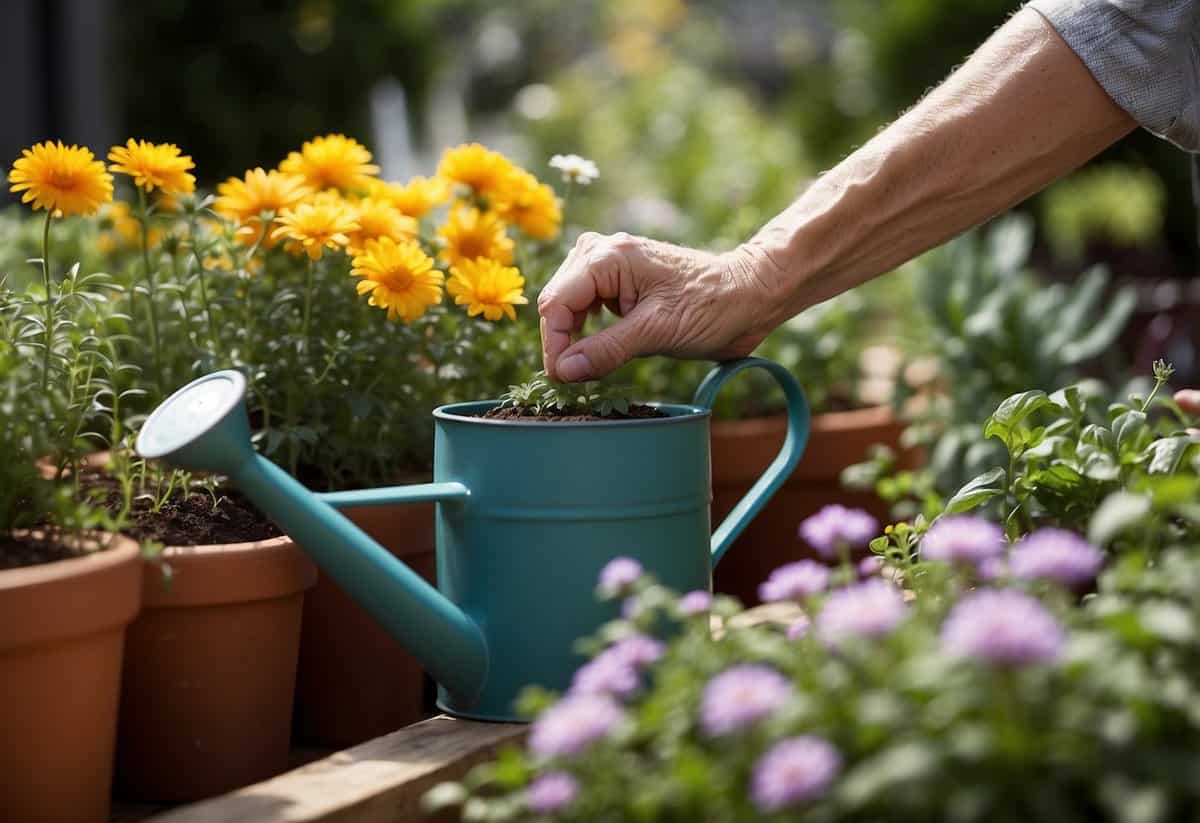
Vertical planters are a great way to save space in your garden. They let you grow more plants without needing to bend over as much. This is perfect if you have trouble with mobility.
You can hang pots from a trellis or wall. Herbs, flowers, and even vegetables like tomatoes do well in these setups. Vertical gardening keeps your plants healthier by avoiding ground pests and diseases.
Consider using lightweight containers. These are easier to move and replant. Platforms or shelves can also hold multiple pots. This method can make gardening more accessible and enjoyable for you.
For more details, visit Grow More Vegetables in Less Space.
6) Drip Irrigation Systems

Drip irrigation systems are a fantastic way to make gardening easier for older adults. These systems deliver water directly to the roots of plants, reducing the need to lug heavy watering cans or hoses around the garden.
You can set a timer on your drip irrigation system to water plants automatically. This helps to conserve water and ensures your plants get the right amount of moisture.
Drip irrigation can also help prevent overwatering and reduce the risk of soil erosion. If you’re interested in learning more about different options, check out this guide to drip irrigation systems.
7) Perennial Plants

Perennial plants are a great choice for elderly gardeners due to their long-lasting blooms. They come back year after year, reducing the need for replanting.
Consider hardy perennials like salvia and black-eyed Susans. These plants are not only easy to care for but also add vibrant color to your garden.
Dutch garden designer Piet Oudolf loves using perennials like asters and Monardas for their durability and beauty. For more inspiration, check out this guide.
8) Mulching for Weed Control

Mulching is a great way to keep weeds from taking over your garden. By applying a layer of mulch, you create a barrier that blocks sunlight, making it harder for weeds to grow.
Aim for a mulch layer that is two to three inches thick. Too thin, and weeds may still push through. By maintaining the right thickness, you’ll get the best results.
Some mulches, like burlap, can improve soil health while preventing weeds. You can also use tools like Preen Weed Preventer to boost your mulch’s weed control abilities.
9) Comfortable Garden Seating

Comfortable seating is crucial for enjoying your time in the garden. Look for seats with firm cushioning to provide good back support.
Consider adding benches with armrests to make sitting and standing easier. Chairs with adjustable heights can also help you maintain good posture and reduce strain.
Garden stools or kneelers are a great option for those who need to get closer to the ground. Some even come with built-in handles to help you stand up more easily.
Finally, place seating areas in shaded spots to stay cool and comfortable while you relax.
10) Engage in Social Gardening
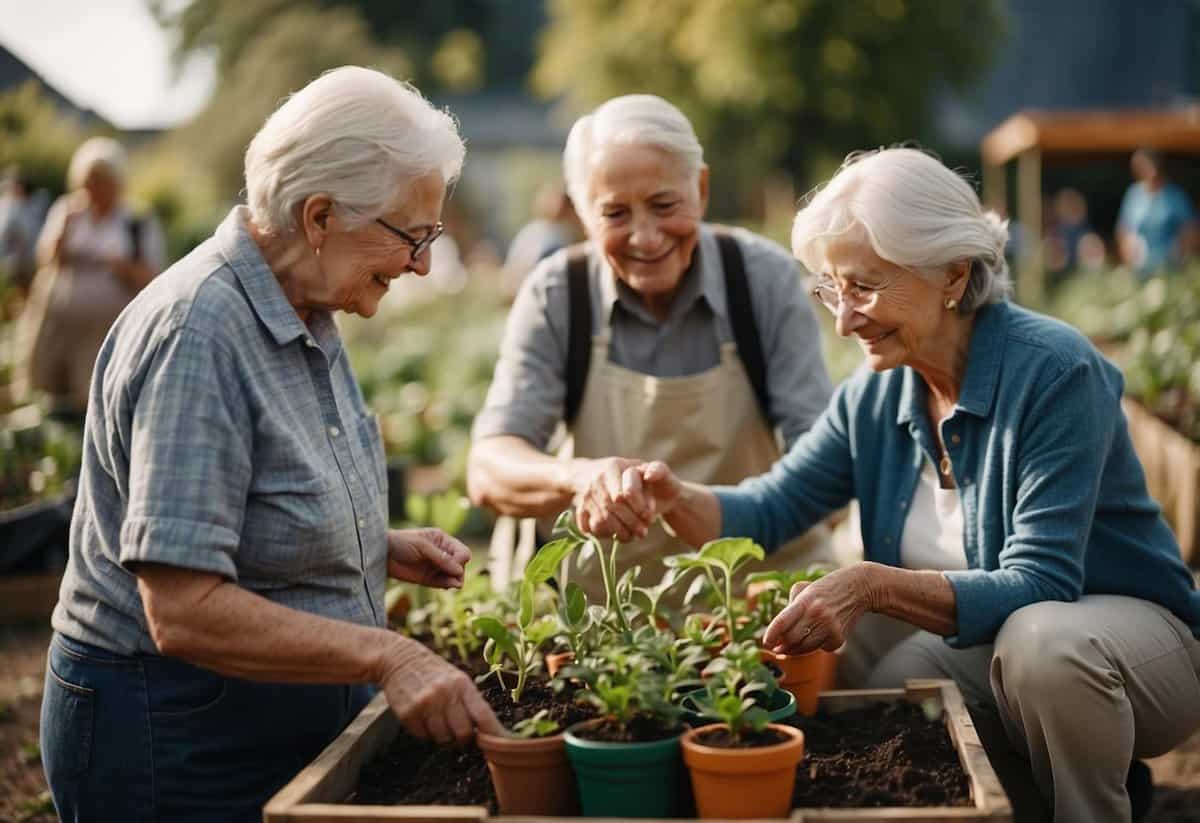
Social gardening is a great way to stay active and make new friends. You can participate in community gardens, which offer a shared space for planting and growing.
These gardens provide a chance to work with others, share tips, and enjoy the beauty of nature together.
Community gardening improves not only your physical health but also your mental well-being. You get fresh air, light exercise, and meaningful social interactions. Being part of such a group can boost your mood and give you a sense of purpose.
Find a local club or create your own group with friends.
Benefits of Gardening for the Elderly

Gardening offers numerous benefits for the elderly, improving physical health, boosting mental well-being, and fostering social connections. Each of these aspects contributes to a better quality of life for seniors engaged in gardening.
Physical Health Advantages
Gardening provides light exercise that helps maintain mobility and strength. Activities like digging, planting, and weeding involve the whole body, promoting flexibility and stability. This low-impact exercise is great for maintaining joint health and can help in managing conditions like arthritis.
Your cardiovascular health can also see improvement. Regular, moderate physical activity increases heart rate and enhances blood circulation. This can help in lowering blood pressure and reducing the risk of heart disease.
Moreover, exposure to sunlight during gardening helps with Vitamin D synthesis. Adequate Vitamin D levels are crucial for bone health, which is especially important for seniors to prevent falls and fractures. All these physical activities contribute to a healthier lifestyle.
Mental Health Benefits
Gardening has a calming effect, reducing stress and anxiety. The act of nurturing plants and seeing them grow offers a sense of accomplishment. This can boost your mood and provide a sense of purpose.
Engaging with nature has been shown to improve cognitive function. Garden tasks require planning and problem-solving, which keeps the mind active and sharp. For seniors, this can be particularly beneficial in combating the onset of dementia or other cognitive issues.
Enjoying the sensory stimulation from the sights, sounds, and scents of a garden can be very soothing. It can serve as a therapeutic escape from daily worries, promoting a peaceful state of mind.
Social Connections
Gardening can be a great way to connect with others. Community gardens offer opportunities to meet new people and share gardening tips and experiences. This can lead to the development of meaningful friendships and a sense of belonging.
Even gardening at home can bring family members together. It provides an activity that can be enjoyed with grandchildren or friends, strengthening bonds. It creates a shared space where everyone can contribute and participate.
Participating in local gardening clubs or workshops is also beneficial. These gatherings can expand your social network and offer social interaction, which is vital for emotional well-being.
Adaptive Gardening Techniques

Adaptive gardening helps elderly individuals enjoy gardening without the strain. By using raised beds, ergonomic tools, and accessible pathways, you can make your gardening experience more enjoyable and less tiring.
Raised Beds and Containers
Raised beds bring the garden up to a comfortable level, reducing the need to bend or kneel. These can be built from wood, metal, or plastic and filled with soil to grow a variety of plants. Containers, like pots or window boxes, also provide a flexible option for gardening. You can place them on tables, stands, or even window sills. This setup allows you to maintain your garden without overexerting yourself.
Ergonomic Tools
Ergonomic tools are designed to reduce strain on your body. Look for tools with padded grips and long handles. These features help you maintain a solid hold and reduce the need to reach or bend awkwardly. Tools with lightweight materials are also beneficial, making them easier to handle. Consider using specially designed tools for tasks like digging, pruning, and watering to make the work less tiring and more efficient.
Accessible Pathways
Creating accessible pathways in your garden makes moving around much easier. Ensure the paths are wide enough for a wheelchair or a walker. Consider using materials like bricks, pavers, or gravel to create stable, non-slip surfaces. Raised edges can help keep you safe by defining the path clearly. Accessible pathways ensure that you can reach all parts of your garden without worrying about tripping or getting stuck.
